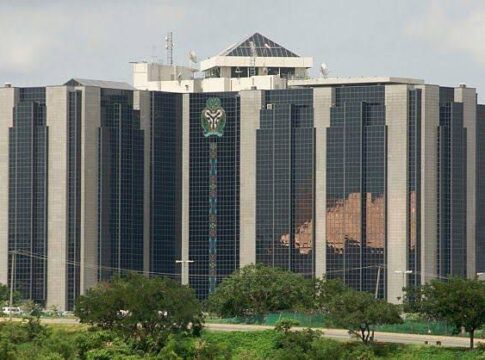Nigeria’s economy recorded a growth of 3.46% in the third quarter of 2024, driven by robust performance in the non-oil sector. According to the Central Bank of Nigeria (CBN), the GDP reached ₦20.1 trillion, a significant rise from ₦18.3 trillion in the previous quarter.
Inflation eased during the period, supported by a drop in food prices and the central bank’s tight monetary policies. “The restrictive monetary stance played a pivotal role in moderating inflation,” the CBN stated in its quarterly economic report.
Non-Oil Sector Spurs Economic Gains
The non-oil sector recorded a 3.37% growth, contributing 3.18 percentage points to the overall GDP expansion. Key drivers included financial services, ICT, trade, and agriculture. The financial and insurance sub-sector grew by a staggering 30.83%, supported by the banking recapitalization initiative.
“This performance underscores the transformative impact of digital payment systems and fintech growth,” the report noted. ICT also surged by 5.92%, reflecting the rising demand for digital services like e-commerce and internet connectivity.
Oil Sector Growth Faces Global Price Challenges
Despite rising crude oil production from 1.27 million barrels per day in Q2 to 1.33 million in Q3, the oil sector’s growth slowed to 5.17%, down from 10.15% in the previous quarter. Declining global prices of Nigeria’s Bonny Light crude, which fell to $82.07 per barrel from $86.92, impacted performance.
READ MORE: Nigeria Health Watch reinforced efforts in tackling Health Misinformation
However, enhanced security around pipelines in the Niger Delta ensured steady production. “Security improvements have been crucial in sustaining positive growth in the oil sector,” the CBN said.
Services Sector Leads Economic Expansion
The services sector grew at 5.19%, dominating the economy with a 53.58% share of the GDP. The transport and storage sub-sector rebounded with 12.15% growth, driven by better road infrastructure and lower reliance on costly air transport.
The CBN attributed this surge to government investment in alternative fuels like compressed natural gas (CNG) and improved security. “Enhanced infrastructure and energy alternatives have transformed Nigeria’s transportation sector,” the report highlighted.
Agriculture and Industry Show Mixed Results
Agriculture posted modest growth of 1.14%, aided by favorable weather and increased harvests. Crop production grew by 1.18%, while forestry expanded by 2.23%. However, the fishing sub-sector contracted by 1.91%, reversing prior gains.
Industrial growth slowed to 2.18%, reflecting weaker mining and quarrying activities, which shrank by 61.36%. Nonetheless, gains in water supply (9.78%) and construction (2.91%) contributed positively to the sector.
The report underscores the importance of security, digital transformation, and infrastructure investment in sustaining Nigeria’s economic momentum.




